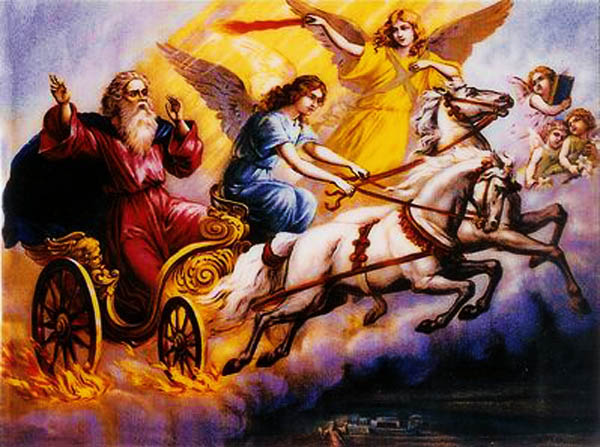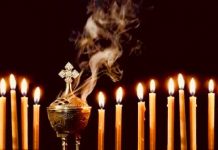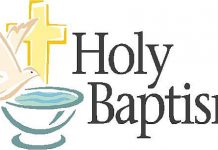Saint Elias (Elijah) the Living: Prophet of Fire, Ascension, and Holy Zeal
Elias Bejjani/July 20/2025
Lebanon, together with the Maronite Church and believers everywhere, celebrates on July 20 the Feast of the Prophet Elijah—known in our tradition as Saint Elias the Living. He was a fiery prophet who stood fearlessly before kings and tyrants, boldly proclaiming God’s word in a time of fear, corruption, and spiritual decline. He was a prophet of confrontation, a man of unwavering faith and divine fire—a flame that never goes out, a zeal that burns away lies and betrayal.
Elijah in the Bible: The Voice of Truth Against Tyranny
Elijah appeared during the reign of King Ahab and Queen Jezebel, who led Israel into idolatry and worship of Baal. But Elijah stood firm and declared: “As the Lord lives, before whom I stand” (1 Kings 17:1). With this declaration, he began his prophetic mission—defying earthly powers, false worship, and spiritual decay without fear or compromise. God was with him in power. Elijah raised the widow’s son from death, called down fire from heaven, parted the waters of the Jordan, and ascended alive into heaven in a chariot of fire. He was a forerunner of Christ—the victorious one—and a symbol of every person who fights for truth and righteousness.
The Transfiguration of Elijah and Moses with Christ: A Revelation of Glory, Prophecy, and the Law
In a moment beyond description, Jesus ascended a high mountain with His three disciples: Peter, James, and John. There, before their eyes, “His face shone like the sun, and His clothes became as white as the light” (Matthew 17:2). Suddenly, Moses and Elijah appeared to them, talking with Him (Matthew 17:3), in a scene where prophecy met the Law, and the ancient testimony bore witness to the glory to come. The Evangelist Luke tells us that Moses and Elijah spoke with Jesus about His departure, which He was about to accomplish at Jerusalem (Luke 9:31)—a clear reference to His crucifixion and resurrection. Then came the voice of the Heavenly Father from the cloud, saying: “This is My beloved Son, in whom I am well pleased. Listen to Him!” (Matthew 17:5). Thus, Elijah the prophet—who never tasted death—stood alongside Moses to bear witness to Christ, the incarnate Word, who fulfilled all the prophecies and brought the Law to its fullness.
The Miracles of Saint Elijah
He prayed, and the heavens were shut: It did not rain on the land for three years and six months.
(1 Kings 17:1; 1 Kings 18:1; James 5:17; Luke 4:25)
The ravens brought him food: God commanded the ravens to feed him.
(1 Kings 17:4)
He blessed the widow’s flour and oil: The jar of flour was not used up, and the jug of oil did not run dry.
(1 Kings 17:8–9)
He raised the widow’s son from the dead: Elijah cried out to the Lord, and the child’s life returned to him.
(1 Kings 17:17–24)
Fire from heaven consumed the sacrifice: The altar was burned, the offering was accepted, and the prophets of Baal were destroyed.
(1 Kings 18:29–40)
His prophecy against King Ahaziah was fulfilled: The king died as Elijah had foretold.
(2 Kings 1; 2 Kings 9:27–28)
He parted the Jordan River with his mantle: The waters divided, and he crossed on dry ground.
(2 Kings 2:8)
Fire from heaven consumed the messengers of King Ahaziah: Twice Elijah called down fire from heaven, and it devoured the captains and their men.
(2 Kings 1:10–14)
His ascension into heaven: Elijah was taken up by a chariot of fire and ascended to heaven in a whirlwind.
(2 Kings 2:11–12)
The Character of Elijah: Zeal, Courage, and Prayer
Elijah wasn’t just a prophet—he was truly a man of God. He was zealous for the Lord’s commandments, fearless before kings, and humble in the presence of God. He wept and prayed, and God revealed Himself not in the earthquake or fire, but in a still, small voice (1 Kings 19:12). Elijah was a man of prayer and hope. When he cried out to heaven, rain fell after three and a half years of drought. When he prayed for the widow in Zarephath, God raised her son back to life. Elijah was God’s voice in a time of drought—His hand of mercy in an age of despair.
Mount Carmel: The Fire of Confrontation
On Mount Carmel, Elijah stood alone against 450 prophets of Baal. He challenged the people, saying: “If the Lord is God, follow Him! But if Baal, follow him!” (1 Kings 18:21). The prophets of Baal prayed all day, but no fire came. Then Elijah rebuilt the altar of the Lord, poured water over the sacrifice three times, and cried out: “Answer me, O Lord, so that this people may know that You, O Lord, are God!”(1 Kings 18:36-37) God answered with fire from heaven—it consumed the offering, the stones, and even the water. The people fell to the ground and cried out: “The Lord, He is God!”Then Elijah prayed again, and the rain returned after years of drought, soaking the thirsty land (1 Kings 18:42–45).
The Fiery Ascension and the Glory of Christ
After fulfilling his mission, Elijah struck the waters of the Jordan with his cloak and crossed on dry ground with his disciple Elisha. Then, “suddenly, a chariot of fire with horses of fire appeared… and Elijah went up by a whirlwind into heaven” (2 Kings 2:11). He did not die—he was taken up in glory. And because he did not taste death, Elijah later appeared with Moses during the Transfiguration of Jesus on Mount Tabor (Luke 9:30). This showed the union of the Law (Moses) and the Prophets (Elijah) in Jesus Christ, the Son of God and the Light of the world.
Elijah in Zarephath: The Miracle on Lebanese Soil
The Gospel of Luke tells us: “There were many widows in Israel… yet Elijah was sent to none of them but only to a widow in Zarephath in the land of Sidon” (Luke 4:26). That widow gave him bread from her poverty, and God blessed her flour and oil, and later brought her dead son back to life through Elijah’s prayer. So the first miracle of resurrection took place in Lebanon. And the blessing of Elijah touched our land—and began here.
Lebanon and Saint Elias: A Spiritual and Historic Bond
Few prophets are as closely tied to Lebanon as Saint Elias. From Zarephath of Sidon to Mount Hermon, from ancient churches bearing his name in the mountains and valleys, to the caves where monks sought his spirit, Lebanon holds Elijah close in heart and soul. The great Lebanese thinker Fouad Ephrem al-Boustani wrote in his Book of Days: “This is the feast that lights the wounds of the nation—not to deepen them, but to show that the fire of God’s truth is still alive. And in every generation, a new Elijah must rise—to bear witness, to call down rain, and to restore hope to the people.” He called him “The Prophet of Lebanon”—because he walked our soil, breathed our air, and glorified God on our mountains.
Saint Elias and the Lebanese Identity
Saint Elias reflects the very soul of Lebanon: faith in freedom, rejection of false gods, and speaking truth to tyranny. Today, as Lebanon suffers under the oppression of the Iranian occupation and its armed proxies, we need Elijah’s spirit more than ever—a spirit that does not fear, does not bow to Baal, and does not trade truth for power. He is the protector of the free, the voice of courage, the prophet of justice, and the standard-bearer of divine truth on every mountaintop.
The Message of His Feast Today
In an age of compromise, idolatry, and moral decay, we need a new Elijah: A prophet who will not be silent, who will burn with holy zeal, and who will cleanse the land of falsehood and fear. Let us pray through his intercession that the Lord would once again send the rain—not only from the skies, but the rain of grace, of repentance, and of spiritual renewal.
A Prayer for Lebanon
O Saint Elias the Living, Prophet of fire and truth, You who called down rain and fire by your prayers, Send peace upon our suffering Lebanon, Give courage to our people, And renew in our Church the spirit of prophecy. Teach us to stand like you stood, To speak truth like you spoke, And to remain faithful to the Lord alone. Let your fire hover over this land, So that Lebanon may remain forever A nation of faith and freedom, From generation to generation. Amen.


















